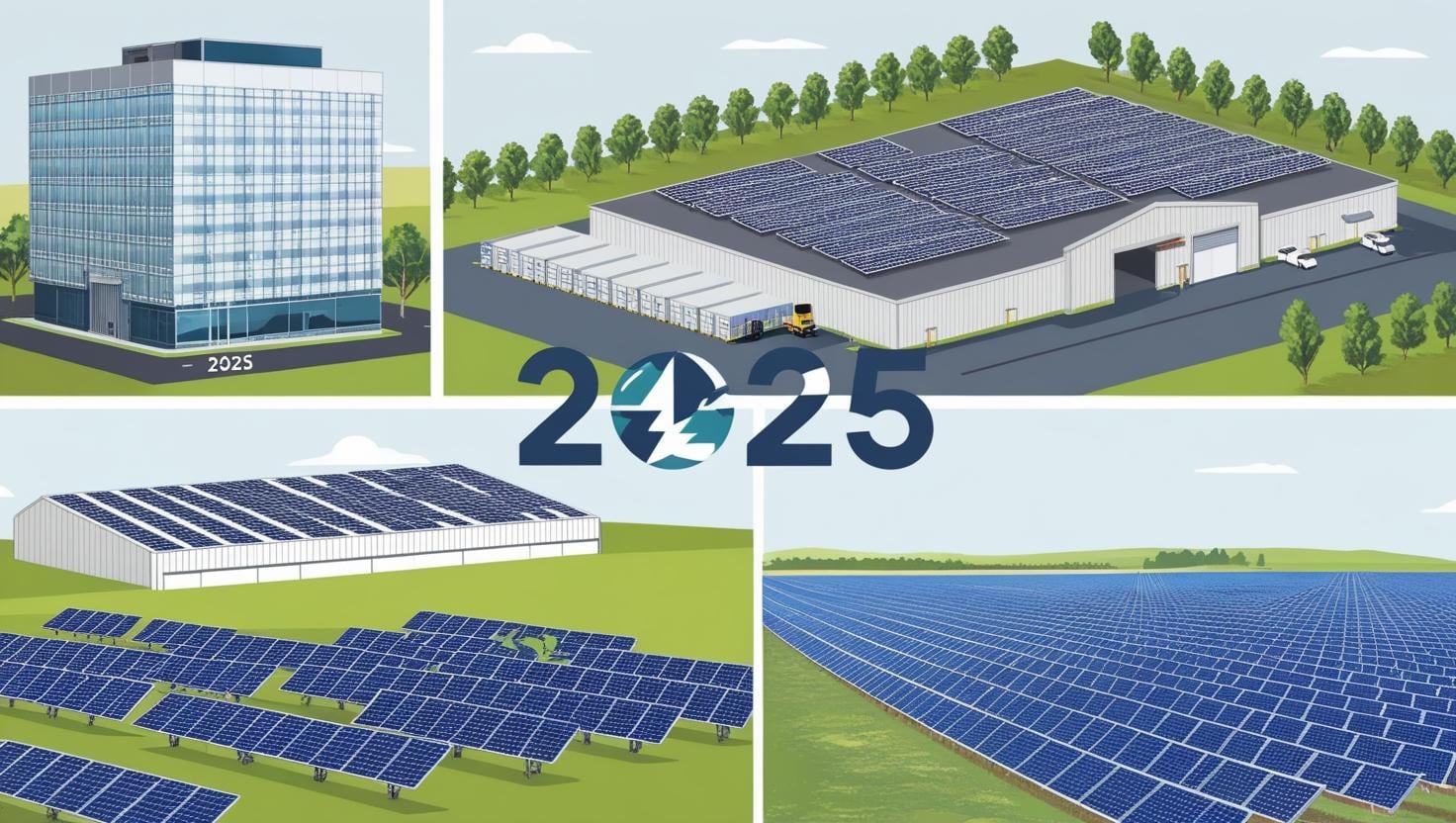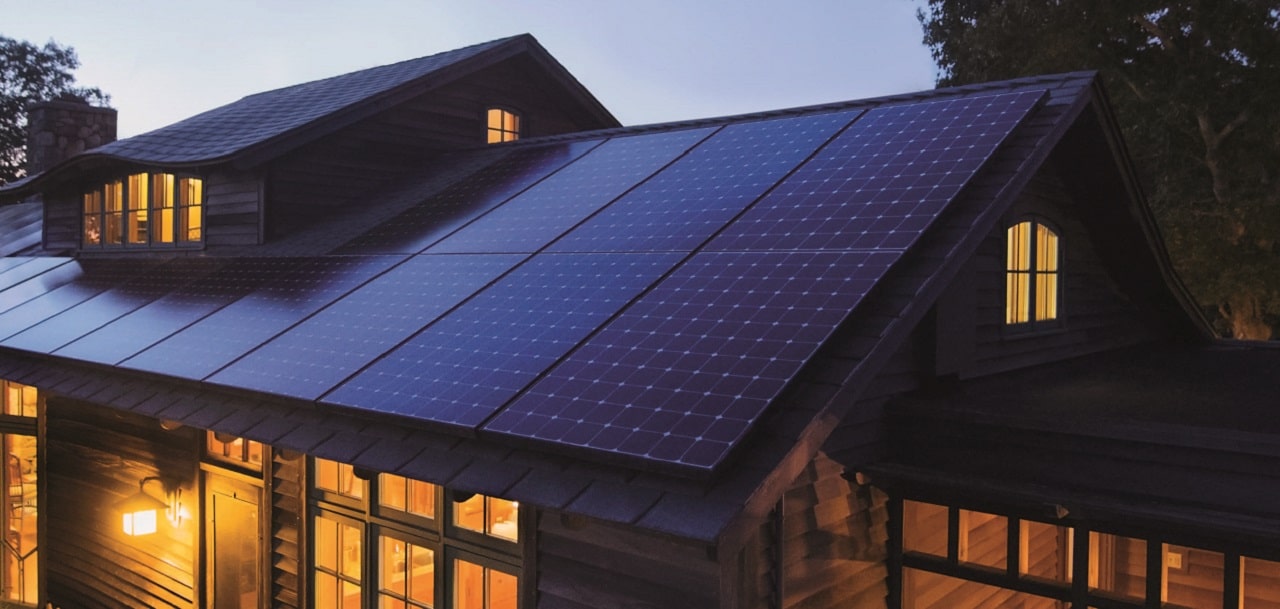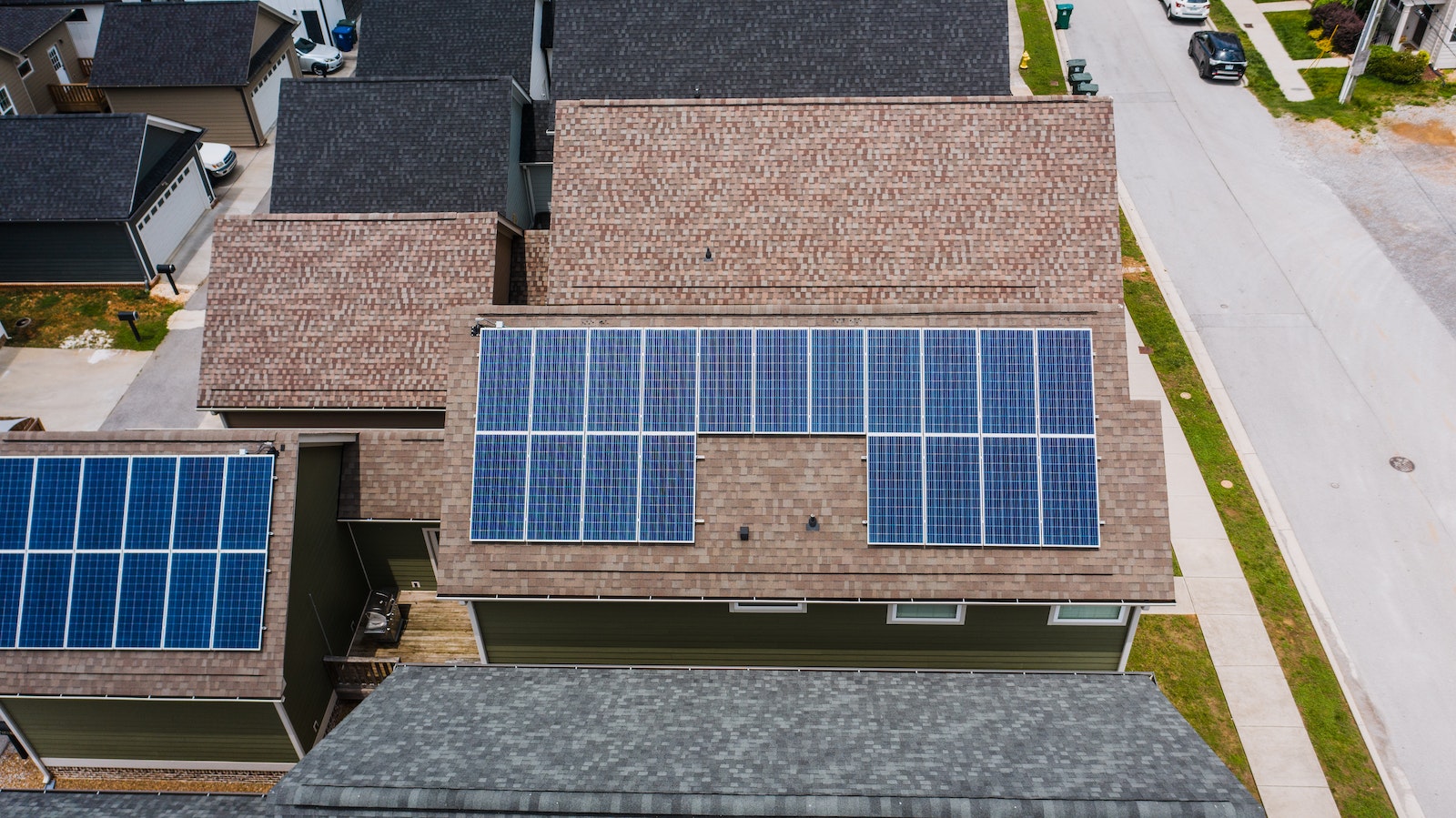Key Takeaways
- Evaluating energy needs is crucial to select the best solar solutions for your business, optimizing efficiency and cost savings!
- Investing in solar can cut electricity bills by up to 75% and come with fantastic tax credits, making it a smart financial choice!
- Choosing a reliable solar contractor and developing a comprehensive solar plan lays the groundwork for a successful solar transition!
As the solar boom of 2025 approaches, businesses are increasingly turning to solar energy solutions to meet their sustainability goals and reduce energy costs. Sun Source Energy, a leading commercial solar installer based in Las Vegas, Nevada, is at the forefront of this renewable energy revolution.
Known for its commitment to quality and customer satisfaction, Sun Source Energy provides tailored solar installations that cater to the unique needs of both residential and commercial clients.
By partnering with Sun Source Energy, businesses can seamlessly transition to solar power, ensuring a sustainable and cost-effective energy future.
Evaluating Your Energy Needs for Solar Integration
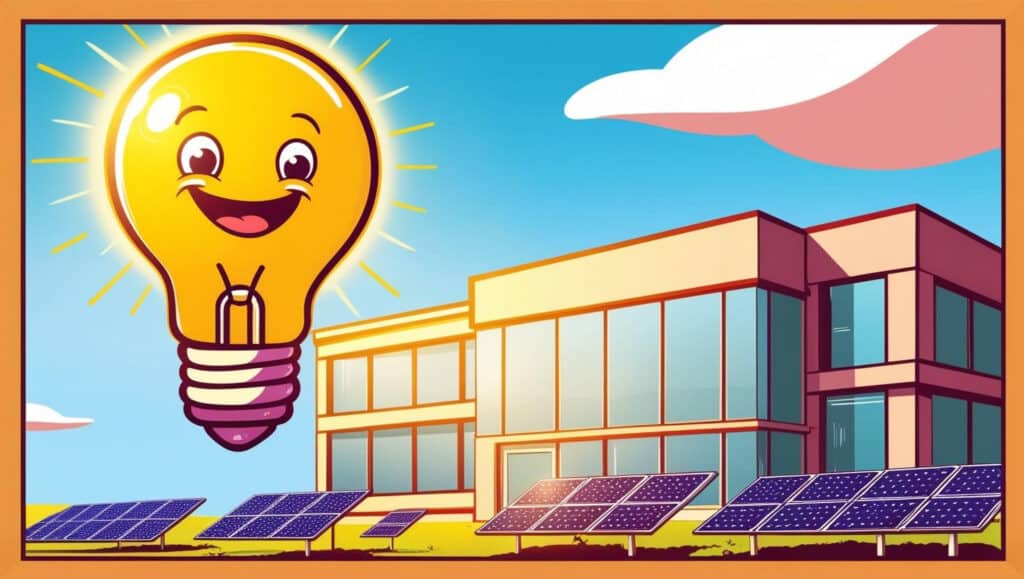
Before installing solar systems, evaluating your energy needs is essential. Assessing current energy usage helps identify potential savings and tailor customized energy sourcing solutions. This ensures chosen solar solutions align with business requirements, maximizing efficiency and cost savings.
Understanding your energy consumption patterns and future needs allows selecting the most suitable solar energy systems from the available solutions. This evaluation optimizes energy usage and sets the foundation for a successful solar project.
Understanding Different Types of Solar Energy Systems
Navigating the diverse landscape of solar energy systems can be overwhelming, but choosing the right type for your business is crucial. Roof-mounted solar systems are versatile and can be attached to various roofing types, including flat, sloped, metal, and shingle roofs. These systems are ideal for businesses with available roof space and offer a straightforward installation process.
For businesses with unconventional spaces, flexible solar panels provide an innovative solution. These panels can adapt to various surfaces, opening new possibilities for solar energy applications.
Alternatively, solar carports, although more expensive due to their taller structures, provide dual benefits of energy generation and enhanced parking facilities. Understanding these options aids in making an informed decision aligned with your business needs.
Financial Benefits of Solar Power for Businesses
Solar power can offer significant financial advantages and is an effective way to save on energy costs. Businesses can cut their electricity bills by up to 75%, leading to substantial cost savings. For example, the average energy cost for commercial properties before switching to solar is $156,010. With solar energy, businesses can potentially save over $100,000 in electricity costs over 20 years.
Furthermore, rising energy costs make solar adoption even more appealing. Investing in solar energy solutions allows businesses to stabilize their energy expenses and protect against future price hikes. Solar benchmarking estimates offer insights into projected production and potential savings, aiding businesses in gauging the financial viability of their solar projects.
Tax Incentives and Credits for Solar Installations
A compelling financial incentive for adopting solar energy is the Federal Investment Tax Credit (ITC), which offers a 30% tax credit on the upfront cost of solar installations. This significantly reduces the overall investment, making solar power more accessible for businesses. State and local incentives can further reduce costs, potentially cutting installation expenses by up to 70%.
In states like Massachusetts, businesses can access various tax incentives and programs designed to offset solar installation costs. These financial incentives reduce the initial investment and enhance the overall return on investment for solar projects.
Additional benefits include a 30% to 50% recoupment through MACRS depreciation and a potential 30% solar investment tax credit for solar farms.
Long-Term Cost Savings
Investing in solar energy provides impressive long-term cost savings. Businesses usually see a return on their solar investment within 3 to 7 years, after which they continue to save significantly on energy costs. Over 20 years, potential savings can exceed $100,000, making solar a financially viable option.
Solar installations can also increase property values, making the investment more attractive for business owners. Accelerated depreciation under MACRS lets businesses recover the costs of solar assets more quickly than standard depreciation methods. This financial strategy supports immediate cost savings and contributes to long-term financial stability.
Choosing the Right Solar Technology for Your Business

Choosing the right solar technology is crucial for maximizing energy savings and efficiency. Making an informed decision requires assessing energy needs, available space, and budget. Commercial solar systems primarily include roof-mounted setups. They also include ground-mounted systems and solar carports.
Ground-mounted installations offer optimal energy production by avoiding shading, though they typically have a higher initial cost. Solar carports offer the dual benefit of energy generation and enhanced parking facilities, ideal for urban businesses with limited roof space but ample parking areas.
Innovations in solar technology have resulted in higher efficiency panels, enabling better energy savings and solar energy production performance.
Photovoltaic Panels vs. Solar Carports
Photovoltaic panels provide high efficiency and power output, suitable for various business applications. The choice between photovoltaic panels and solar carports depends on specific energy needs, available space, and business context.
Solar carports are particularly suitable for urban businesses. They offer a solution for businesses with limited roof space and ample parking.
Benefits of American-Made Solar Panels
American-made solar panels offer several advantages:
- Higher quality compared to imports
- Adherence to strict quality standards, ensuring reliability and longevity
- A sound business investment
- Reduced lead times for faster project implementation
Emphasizing high-quality, American-made solar products can enhance brand image and foster customer loyalty. Supporting local manufacturing contributes to job creation in the renewable energy sector, boosting the economy.
Partnering with a Reliable Solar Contractor
Choosing a reliable solar contractor is vital for the successful implementation of solar energy systems. Verifying a contractor’s track record, past installations, and client testimonials is essential when making a selection. Professional help ensures quality and reliability in solar panel construction and installations.
Partnering with a reputable contractor ensures solar installations are done correctly and efficiently. This partnership guarantees installation quality and provides ongoing support and maintenance for the solar systems.
Why Choose Sun Source Energy
Sun Source Energy, based in Las Vegas, Nevada, is an excellent choice for commercial and residential solar installations. Customer satisfaction is a priority for Sun Source Energy, focusing on tailored solar solutions to meet specific needs. They offer solar installations for residential properties and commercial enterprises, ensuring quality and reliability.
As a recommended installer, Sun Source Energy handles solar projects with utmost professionalism and expertise. Their commitment to customer satisfaction and high-quality installations makes them a reliable solar energy partner and a proud member of the solar energy industries association.
The Installation Process Explained
A thorough site evaluation by the solar contractor is the initial step. This step is essential in the solar energy system installation process. During the site assessment, the contractor evaluates factors like roof condition, shading, and orientation. This evaluation ensures the solar system is tailored to the site’s specific needs and conditions.
After the site evaluation, the next step is securing the necessary permits and approvals. The solar installer manages the entire process, ensuring all necessary steps are completed efficiently and effectively. This comprehensive approach ensures a smooth and successful installation.
Enhancing Energy Efficiency for Maximized Solar Benefits
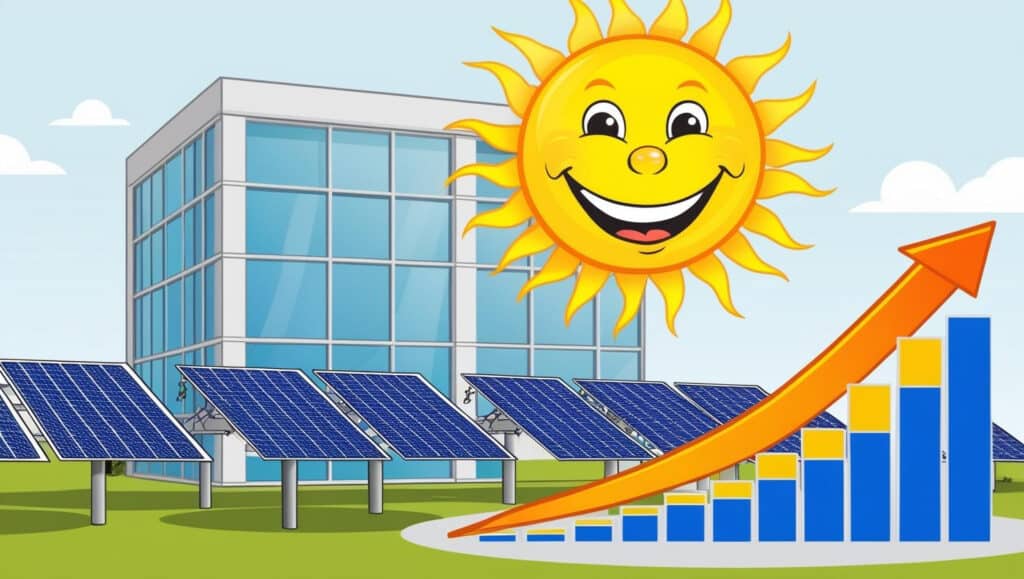
Energy-efficient upgrades can significantly lower energy consumption and improve solar system performance. Simple changes can boost energy efficiency. For example, swapping old incandescent lighting for CFL or LED bulbs is beneficial. Integrating solar panels with an energy management system enables real-time data collection and analysis, identifying potential savings.
Managing energy costs through self-generated electricity from solar installations helps businesses stabilize energy expenses and protect against rising traditional energy prices. Regular maintenance enhances solar system efficiency and helps prevent costly long-term repairs.
Conducting Energy Audits
Energy audits identify inefficiencies and opportunities for savings. Systematic evaluation of energy usage reduces overall costs. Energy audits pinpoint specific areas for improvement, leading to more effective solar system performance.
Annual audits assess solar system performance. They help detect problems before they worsen. Routine inspections ensure optimal performance and identify potential issues.
Smart Energy Management Solutions
Smart energy management systems enhance efficiency by monitoring solar panel performance in real-time, optimizing energy use and savings. These tools offer predictive analytics, enabling businesses to optimize energy consumption proactively. Integrating smart thermostats and sensors can further enhance energy management system efficiency.
Real-time monitoring can optimize energy consumption and enhance overall savings. This technology maximizes solar installation benefits and contributes to a more sustainable, cost-effective energy management strategy.
Maintenance and Upkeep of Solar Systems
Regular monitoring and maintenance are crucial for maintaining peak efficiency and prolonging the lifespan of solar systems. Regular maintenance ensures reliable and efficient clean energy production. Essential tasks for maintaining solar panels include regular inspections, cleaning, and periodic checks on wiring and inverters.
Addressing minor repairs promptly can prevent further damage to solar energy systems. A well-maintained solar energy system offers long-term efficiency and savings.
Routine Inspections and Audits
Regular inspections can reveal underlying issues, preventing future malfunctions. Routine inspections are critical for ensuring optimal solar panel performance.
Annual audits provide a comprehensive assessment, highlighting performance metrics and areas for improvement. Establishing a consistent schedule for inspections and audits ensures the longevity and efficiency of your solar investment.
Cleaning and Repair Best Practices
Cleaning solar panels is most effective when done during cooler parts of the day to avoid damage from hot surfaces. Regular cleaning is essential to maintaining their performance and preventing damage.
Regular maintenance checks help identify issues early, ensuring that solar panels perform at their best.
Environmental Impact and Corporate Responsibility
Transitioning to solar energy significantly reduces a business’s carbon footprint and demonstrates a commitment to sustainability. This switch to renewable energy offers financial, environmental, and reputational benefits, enhancing a company’s overall corporate responsibility. By adopting solar energy, businesses can meet sustainable practices and boost their public image.
Using domestically produced solar panels supports local manufacturing and contributes to job creation in the renewable energy sector. American-made solar panels often comply with stricter manufacturing standards, ensuring better quality and reliability, which boosts corporate image.
Reducing Carbon Footprint
Adopting solar systems can lead to substantial reductions in greenhouse gas emissions. When businesses invest in solar energy, they significantly lower their carbon footprint, aligning with eco-friendly practices and regulations.
Sustainability efforts boost increased customer satisfaction and loyalty, driving repeat business and attracting new customers.
Boosting Business Reputation
Boosting a business’s reputation, adopting solar energy showcases sustainability initiatives. Improving public image through solar energy can help attract environmentally conscious clients. Choosing American-made solar panels supports local manufacturing, positively impacting the economy.
Overall, adopting solar energy enhances a business’s reputation and attracts eco-conscious customers.
Future Trends in Solar Technology
The future of solar technology is bright, with continuous advancements leading to higher efficiency and new applications. Recent advancements in solar technology have led to solar panels achieving efficiency rates exceeding 20% due to continuous research and development. Perovskite solar cells offer a cost-effective manufacturing process and high efficiency, positioning them as a potential alternative to traditional silicon-based panels.
Bifacial solar panels generate more electricity by capturing sunlight from both sides, increasing energy production in various settings. Flexible solar panels can be integrated into unique designs, making them suitable for unconventional placements such as clothing or vehicles. These innovations are driving the growth of the solar market and offering new business opportunities in the renewable energy sector.
Innovative Solar Technologies
Bifacial solar panels utilize sunlight from both their front and back sides, improving energy generation through reflected light. These panels are known for capturing sunlight from both sides, leading to enhanced energy output.
Flexible solar panels enable a wide range of applications. They can be used on diverse surfaces such as clothing and vehicles. Floating solar farms use sun-tracking technology. This helps them maximize sunlight capture.
Technological advancements in solar energy have significantly increased its efficiency. This improvement also enhances its integration into various applications, making solar energy more accessible. These innovations are transforming the solar industry and opening new avenues for businesses to leverage solar power.
Market Growth and Business Opportunities
The solar industry continues to show a strong potential for sustainable growth and profitability in the years to come. By 2024, the solar industry employed approximately 280,000 people, illustrating its significant growth. By the end of 2024, the total installed solar capacity in the U.S. reached 219.8 gigawatts (GW). This figure highlights the growth of solar energy in the country. The average annual growth rate of the solar market in the U.S. over the last decade has been a remarkable 26%.
Emerging trends indicate a growing market for bifacial solar technology, reflecting increased consumer demand for more efficient energy solutions. Businesses should remain informed about market growth and opportunities in the renewable energy sector to leverage potential profits. The overall outlook of the solar enterprise field is promising, indicating a favorable environment for new businesses.
Preparing for Solar Adoption: Practical Steps
Preparing for solar adoption involves several practical steps to ensure a smooth transition:
- Assess your current energy supply, as it lays the foundation for a successful transition to solar.
- Conduct a thorough site assessment to identify the optimal configuration for a solar installation.
- Obtain permits and approvals, which is a crucial next step in the solar installation process.
Utilizing energy storage systems can significantly enhance energy management, as they store excess energy for emergencies. Backup generators can serve as an essential solution alongside solar power, ensuring energy reliability.
Securing Financing Options
Financing solar installations can help businesses reduce their initial capital outlay, making it more feasible to adopt solar technology. Exploring financing options is essential for making solar investments more accessible for businesses. Implementing financing strategies can significantly impact the overall feasibility and attractiveness of solar technology for businesses.
Utilizing financing options not only assists with immediate costs but also supports long-term sustainability and growth in solar energy adoption.
Developing a Comprehensive Solar Plan
Creating a thorough solar plan ensures that all aspects of solar integration are considered, including site assessment and energy production estimates. This comprehensive approach helps businesses develop a clear roadmap for their solar projects, ensuring that all necessary steps are taken for a successful solar installation.
Summary
In summary, preparing your business for the solar boom in 2025 involves evaluating your energy needs, understanding different types of solar systems, and leveraging financial benefits.
Choosing the right solar technology and partnering with a reliable contractor are crucial steps in this journey. Enhancing energy efficiency and maintaining your solar systems ensure long-term benefits and optimal performance.
By adopting solar energy, businesses can significantly reduce their carbon footprint, boost their reputation, and contribute to a sustainable future. The future trends in solar technology and market growth present exciting opportunities for businesses to thrive in the renewable energy sector. Embrace the solar revolution and take the necessary steps to integrate solar power into your business operations today.
Frequently Asked Questions
What are the financial benefits of switching to solar power for businesses?
Switching to solar power can slash your electricity bills by up to 75% and save your business over $100,000 in just 20 years! Plus, you can take advantage of fantastic tax incentives and credits.
What types of solar energy systems are available for businesses?
Businesses can choose from roof-mounted systems, ground-mounted systems, flexible solar panels, or even solar carports! Each option is awesome for harnessing solar energy effectively!
How do I choose the right solar technology for my business?
Choosing the right solar technology for your business is all about evaluating your energy needs and budget! Whether you go for high-efficiency photovoltaic panels or solar carports that offer dual benefits, there’s an exciting solar solution waiting for you!
What are the benefits of using American-made solar panels?
Using American-made solar panels means you’re getting top-notch quality and reliability while also supporting local jobs! Plus, you’ll enjoy quicker installation and an enhanced brand image—it’s a win-win!
What steps are involved in the solar installation process?
The solar installation process is super exciting and involves a site evaluation, obtaining permits, and then the actual installation by your solar contractor! Get ready to harness the sun’s energy!


